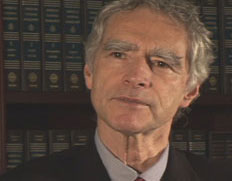|
Conference web page>> |
On April 23-24, SUNY Fredonia’s department of history will present, “Reconsidering the City: A Conference on Urban History.”
Dr. Thomas Bender of New York University will serve as the keynote speaker at the event. The keynote address is titled, “Cities, Nations, and the Cosmopolitan Experience,” and will be given Friday at 6 p.m. in the Multipurpose Room of the Williams Center. The keynote address is free and open to the public.
All conference sessions will be held in the Williams Center on the SUNY Fredonia campus.
Reconsidering the City will bring together scholars from a variety of institutions to discuss new directions in urban history. While urban history has steadily grown as a sub-field of U.S. history for more than fifty years, the last twenty years have brought an outburst of scholarly interest, which has refocused the field. Recent large-scale urbanization in the developing world, along with the decline of many industrial centers in such regions as the northeastern United States have focused scholarly attention on the processes underlying the evolution, decline, and growth of cities.
The panels at the conference will explore a broad range of places, times, and topics, while holding a common view of the city as a challenging environment which different groups struggle to shape in ways that meet their needs and goals. Panels include: “The Politics of Urban Environmental Restoration in the Postwar U.S.”; “Rethinking Sub/Urbanity: Historical Connections of Metropolitan Places”; “Smuggling and the City”; “The City in Motion”; “Conceptualizing Urban Space”; “Transportation, Politics and the Nineteenth-Century City”; “Race and the City”; “The City in Crisis”; and “Teaching Urban Studies.”
The conference will reconsider the city as a site for people to create, negotiate, and live out their varied visions of the “good life,” social justice, environmental well-being, political participation, and cultural access.
To learn more, visit www.fredonia.edu/department/history




